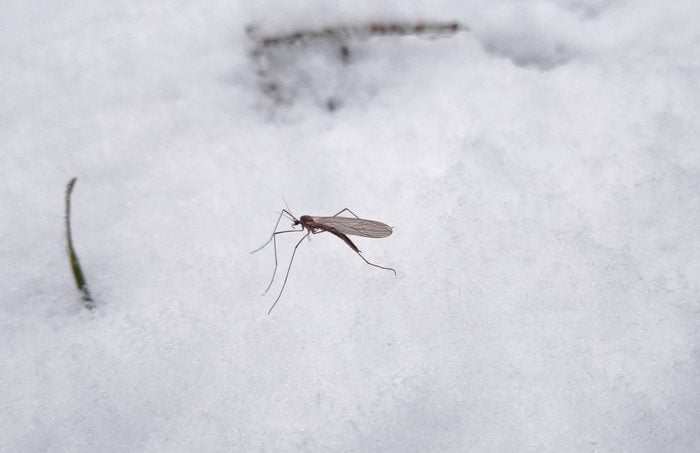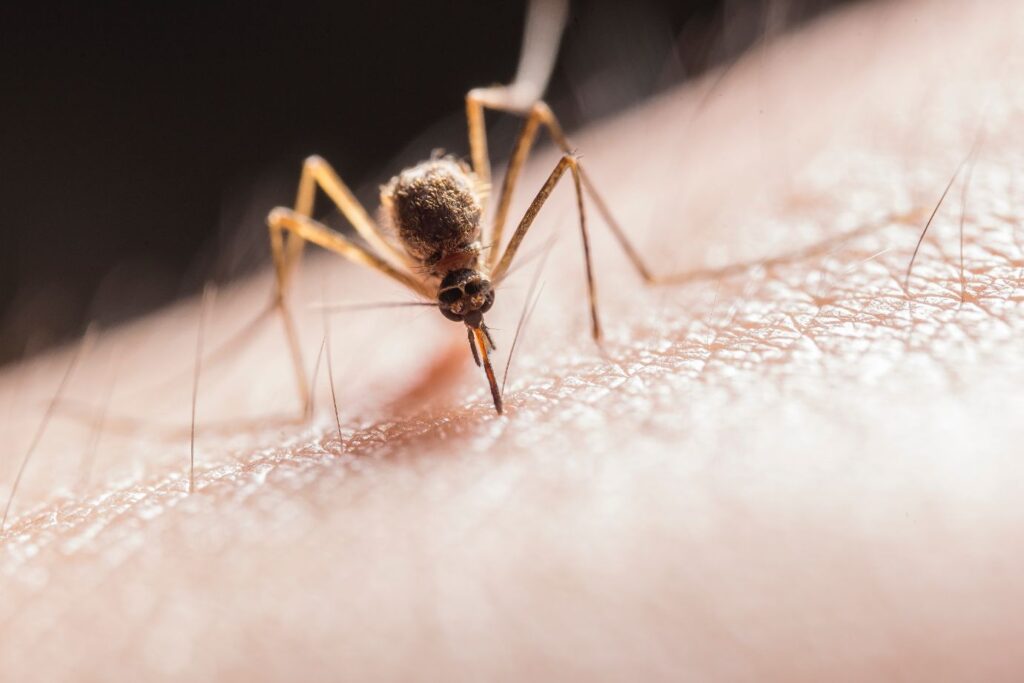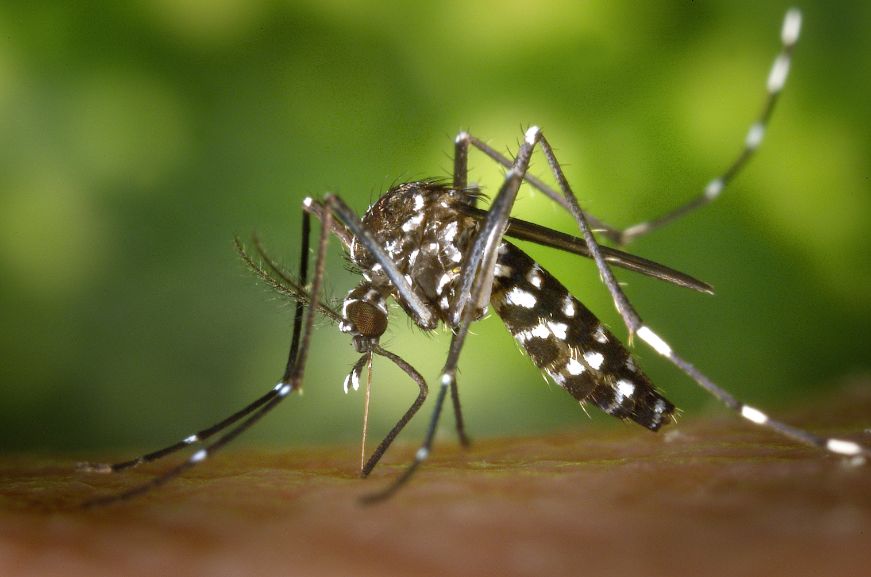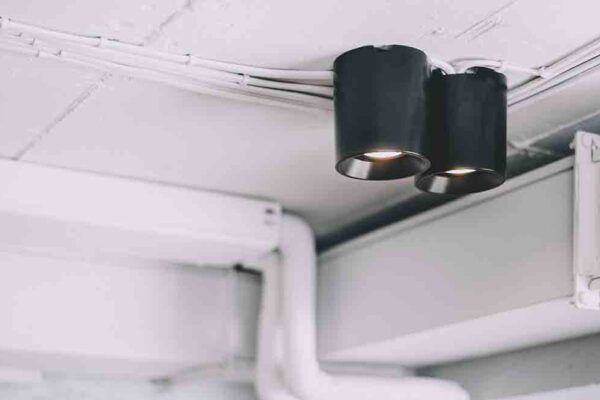As winter approaches, you might be wondering where mosquitoes go. Continue reading to find out more about seasonal mosquito activity and how you can stop a mosquito problem from developing come spring.
One concession for the passing of warm weather is spending less time swatting at mosquitoes as summer finally begins to cool off. You might assume that these bloodsucking pests simply disappear during the winter since they are most active in the summer.
This isn’t the case, though. So where do mosquitoes go during the winter? In spite of your wishes, mosquitoes can survive colder weather by hiding or hibernating, to name a few strategies.
Reproduction, Hibernation, Or Shelter
Where do mosquitoes go during the winter? The type of mosquito will determine this. The various mosquito species can withstand cold temperatures in a variety of ways. In the first place, mosquito eggs are tougher than adult mosquitoes and can endure for up to eight months without food or water. Therefore, even if you are successful in eliminating every adult mosquito, a new generation may be shielded by dry, cold weather.

Even the insect hibernation process known as diapause can occur in some mosquito species. The weather cooling causes mosquitoes to start storing up nutrients and eventually slows down their metabolisms so they can hibernate all winter in hollow logs, animal burrows, or other crevices.
Pupae, which can survive below the surface of frozen water, experience diapause more frequently than adult mosquitoes. But species that are native to temperate climates have evolved to be able to withstand cold conditions in a reasonable way. Even in the winter, some people can survive.
A human’s house provides a mosquito with all the necessary shelter to survive the colder months, so that’s another place they can find protection. When you stay inside during the winter, mosquitoes have access to warm temperatures, water, and blood meals whenever they want.
Mosquitoes Don’t Disappear Completely
You might see the occasional mosquito buzzing around in your backyard on a sunny winter afternoon. They’re still there, just not as many as in the summer.
Some mosquitoes do go away. For example, the activity of the pest mosquito Culex annulirostris, is thought to play an important role in the spread of When temperatures begin to fall below 17.5°C, the Japanese encephalitis virus in Australia experiences a sharp decline.
Studies in Sydney have shown some mosquitoes, such as Culex annulirostris, disappear. Others, such as Culex quinquefasciatus and Culex molestus, remain active throughout the winter. Unless they enter your home to buzz around your ears, you might not even notice them.
After Winter

You might notice that mosquitoes are back in full force in the spring. This is because mosquitoes have spent the winter hibernating. The female mosquito needs a blood meal in order to live and support the growth of its young.
They are searching for people who are sporting shorts and shirts with short sleeves as a result. The mosquito will eat, rest, and lay eggs. The cycle then continues.
The Mosquito Life Cycle
Mosquitoes’ life cycles and habits must be understood in order to comprehend what happens to them. Since they have existed for millions of years, these insects have continuously altered to survive in the environment. The stages of mosquito life follow this pattern:
- The female mosquito lays eggs in standing water
- Eggs hatch within 24-48 hours
- Larvae develop into pupae within 10 days
- Approximately 48 hours later, the mosquito turns into an adult
Male mosquitoes only live for about 10 days, dying soon after mating. The implication of this is that male mosquitoes rarely survive the fall. whereas female mosquitoes lay their eggs in the fall in places where the ground is moist.
Water and moisture are essential to this species at every stage of development. Eggs laid in the fall may remain dormant until the following spring, hatching when the temperature rises and the weather is suitable for enough rain.
Mosquitoes can even lay their eggs in frozen water, which will remain unharmed until warmer weather causes the water to thaw and allow the eggs to hatch. You Might Also Like: Where Do Mosquitoes Live?
Preventing Mosquito Bites

Mosquito bites can hurt and itch. Some symptoms last for days. Others are carriers of diseases that can endanger or even kill humans. In order to avoid getting bitten by mosquitoes, it is a good idea. Here are some tips:
- Mosquitoes must be kept outside. They can bite if these pests are allowed to remain indoors. Close the doors and windows. Make use of nets and screens if you do plan to keep them open.
- Remove any puddles of water. Only the tiniest amount of water is necessary for mosquitoes to breed. Even standing water in a pot or bird bath that has been left outside in the rain can serve as a mosquito breeding ground. Any water-containing containers must be emptied. If you have a pond, mosquito fish and minnows can be helpful.
- If you’re outside, wear repellent. Apply repellent before venturing outside to prevent being bitten by mosquitoes. The most efficient pesticides are DEET, IR3535, picaridin, and PMD. Even infants and expectant mothers are also regarded as being safe. Simply avoid spraying too close to the face.
- Dress appropriately. The best way to avoid mosquito bites is to only wear a swimsuit. Select loose-fitting clothing with long sleeves and long pants. Choose lighter hues instead of dark ones since mosquitoes are attracted to red, blue, and black.
- Stay indoors. Avoid being outside as much as you can in the early morning and late at night because mosquitoes prefer to feed when it’s dark. If not, put on appropriate attire and use repellent.
Conclusion: Where Do Mosquitoes Go in the Winter?
So where do mosquitoes go during the winter? While it is true that mosquitoes cannot survive temperatures below 50 degrees Fahrenheit, there are still a number of ways in which these pests can survive the winter.
Simply put, they are a little less active in warmer climates, and in colder climates, they may hibernate or focus their energy on egg-laying to survive.
Although they can damage your yard at any time of the year, mosquitoes are most annoying in the summer. They might reduce how enjoyable being outside is. Whatever means mosquitoes use to survive in your area, a reputable pest control service can help keep these pesky insects away from your home.





